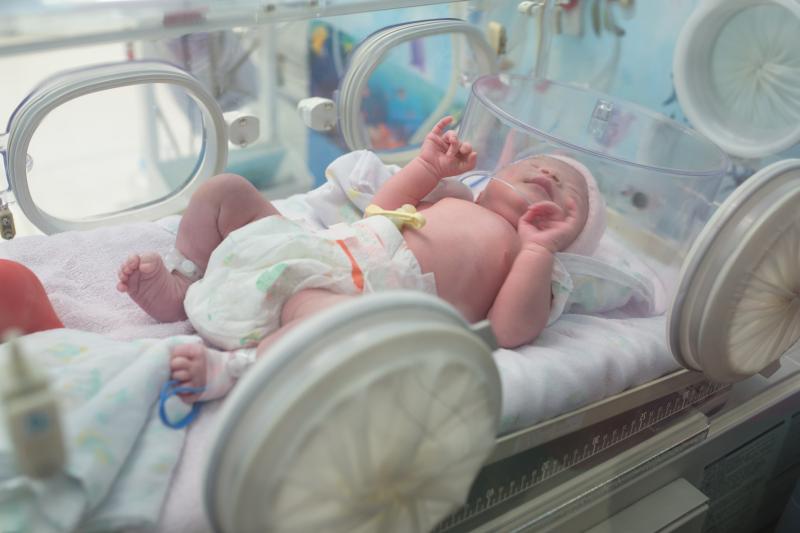
Delayed antibiotic administration may exacerbate mortality risk among infants with sepsis in the neonatal intensive care unit (NICU), a recent study has shown.
Researchers conducted a prospective study of 113 infants (median gestational age, 34 weeks; 58 percent male) with a cumulative of 128 episodes of culture-confirmed sepsis. Study outcomes included mortality, inotrope-free and ventilator-free days, and the length of stay in the NICU, as assessed in relation to the time to antibiotic administration.
The median time to antibiotic administration was 134 minutes in the overall cohort during the first month of the study. Educational interventions and quality improvement initiatives significantly shortened this delay to 58 minutes (p<0.001).
This decrease remained significant in the subgroups of infants on extracorporeal membrane oxygenation, inotrope support or central venous line.
Multivariable logistic regression analysis found that the time to antibiotic administration was a significant and independent risk factor for both 14-day (odds ratio [OR], 1.47, 95 percent confidence interval [CI], 1.15–1.87) and 30-day (OR, 1.47, 95 percent CI, 1.11–1.94) mortality. In contrast, it was also significantly but negatively correlated with inotrope-free days (OR, 0.91, 95 percent CI, 0.84–0.98).
No other risk factor emerged as statistically significant, including gestational age, sex, central venous line and the presence of congenital surgical diseases.
“Further study is needed to investigate the impact of time to antibiotic administration on other outcomes, as well as to improve methods for identifying infants at highest risk of sepsis who would derive the most benefit from timely antibiotic administration,” said the researchers.